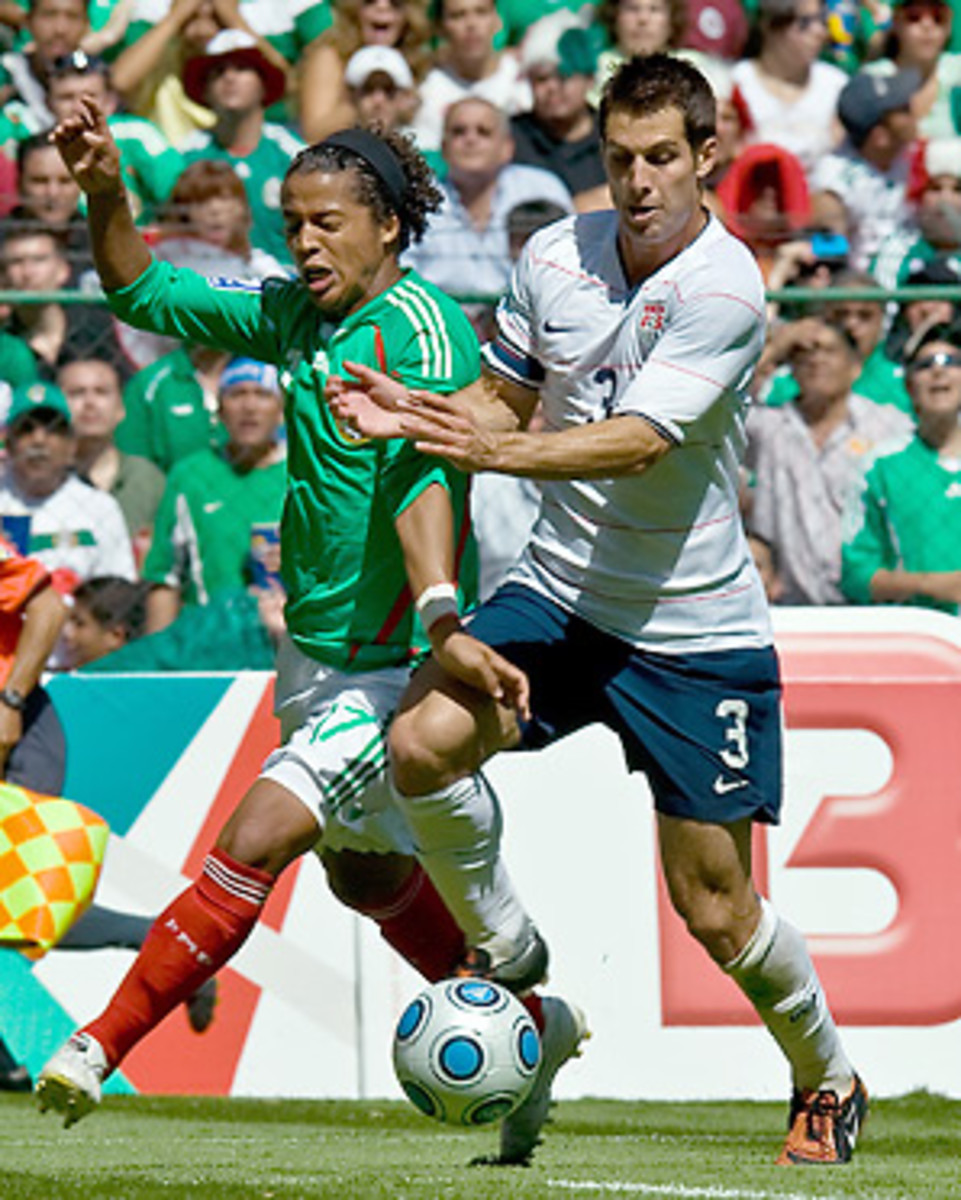Who will lead U.S. national team?
Eight games into the Hexagonal, and three-quarters of the way through the busiest year of the U.S. qualifying campaign, I haven't been able to pinpoint just what is ailing the national team. But I do have an idea.
In beating El Salvador 2-1 at Rio Tinto Stadium and nicking Trinidad 1-0 in Port of Spain, the Americans did barely enough to win. They were the better team, marginally, over the 90 minutes in both matches, yet only one Tim Howard save or fluffed chance separated a win from a tie.
El Salvador zipped balls through the midfield to its dangerous attackers, against whom the Americans disquietingly floundered too many times. T&T found space in the goalmouth for headers that either missed the target or were gobbled up by Howard.
In neither case did the modus operandi of the opposing teams come as a surprise. The Salvadorans, good on the ground and quick up the field, had beaten Mexico at home in the Hexagonal, clear proof they weren't the listless road pigeons they've been in the past. A disallowed Jozy Altidore goal and several squandered opportunities kept the match close; a third U.S. goal might have killed their spirit, but it never came.
Four days later, a robust T&T team coached by former international RussellLatapy not only outmuscled or outhustled the Americans numerous times but also created clear-cut chances with balls to the flank and well-timed runs into the box.
With Jay DeMerit sidelined and Oguchi Onyewu returning to the lineup after serving a suspension in Utah, an alarming number of balls reached the heads of Kenwyne Jones and Cornell Glen to be directed toward goal, and the flank play of right back Carlos Edwards and midfield work by TrentNoel unhinged the U.S. several times.
The easy target is head coach Bob Bradley, or more specifically, his tactics and player selection. In neither category has he been exemplary, but in most departments, neither have his players. And does anyone believe that simply by inserting José Francisco Torres, Benny Feilhaber or Stuart Holden into midfield, or speed-rushing left back Edgar Castillo into the lineup, all will be made right and just?
The middle is also a muddle in light of Maurice Edu and Jermaine Jones. Edu spent the summer rehabbing an injury and desperately needs playing time at Glasgow Rangers to contend for a starting spot. The German-born Jones, also injured, plays for Schalke in the Bundesliga and is regarded by many fans and observers as a lock to start, even though they've never seen him play and won't see him in a U.S. jersey until later this year at the earliest.
One of the many flaws of such rationale is all those players are young -- even Jones is only 27. If this team lacks anything, it's veteran leadership, especially in the middle of the park. There's youth everywhere, and unless past World Cup stalwarts Pablo Mastroeni and DaMarcus Beasley turn it back up, the Americans will be one of the least battle-tested teams in South Africa.
True, Landon Donovan is 27 and will be asked to carry much of the leadership burden, but some experienced players, as in the case of defender Carlos Bocanegra, who often wears the captain's armband, are too error-prone to shoulder the burden.
Others, like Onyewu and Clint Dempsey, have skills and abilities the team sorely needs, but leadership isn't among them. DeMerit has the requisite warrior personality and indomitable American spirit -- his performance in the Confederations Cup sharply ratcheted up his street cred -- but he has never played in a World Cup.
Right back Steve Cherundolo played in the 2006 World Cup and has amassed a wealth of experience playing for more than a decade in the Bundesliga. He can lead by example, assuming he gets the chance. Bradley has given a lot of starts to Jonathan Spector this year. Neither of them is a forceful personality, and nothing like Crew defender Frankie Hejduk, whose reckless abandon and indefatigable spirit inspire teammates much more skilled than he is.
The leadership gap is also glaring in central midfield, where Michael Bradley and Ricardo Clark could be the starters. Bradley is only 22; at 26, Clark is the right age but, again, doesn't have anything more solid than Gold Cups, qualifiers and the Confederations Cup to buttress his case. And, though he's cleaned up his touches and decision-making and has the energy and range to cover ground and close down space, Clark is somewhat like Bocanegra in the unforced errors department.
There's more youth up front. Altidore just turned 20, and Charlie Davies has moved to French club Sochaux in his third pro season at 23. They may be the right U.S. tandem at the World Cup to create and score goals, but are very young to drive the ship. Brian Ching, 31, is a long shot to make the squad, and backups rarely make ideal leaders.
This article originally appeared in the October 2009 issue of Soccer America magazine. Click here for a free 30-day trial.





